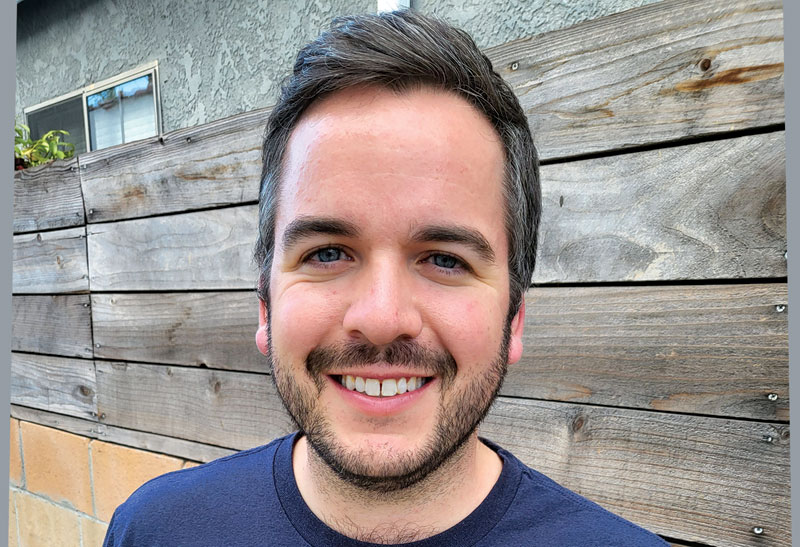So far, the nomination of Judge John Roberts to the U.S. Supreme Court has ruffled few feathers in the American Jewish community.
Many Jewish organization leaders were poised to fiercely oppose a conservative nominee — and to earmark resources to influence senators who must confirm him — but many have decided to wait until after Roberts’ confirmation hearings before determining whether to officially endorse or oppose him.
That’s despite the fact that delaying any initiative to oppose Roberts likely would lessen its impact, compared to a push before the hearings, which are scheduled for later this summer.
Groups that have a high standard for speaking out against a nominee say that, barring unforeseen circumstances, they won’t advocate against Roberts.
Most Jewish groups have taken a step back since Roberts was nominated July 19, acknowledging that his views on issues — to the extent that they’re known — are within what the groups consider acceptable bounds for a Supreme Court justice. At the same time, they say that not enough is known about Roberts’ legal ideology to judge him before the confirmation hearings.
Many suggest that President Bush’s selection of Roberts may have been designed to avoid an immediate fight — and that Bush’s choice may even have been influenced by the fact that Jewish groups and other liberal advocates were ready to oppose an archconservative.
“He picked someone we’re going to have to take a close look at the record on,” said Rabbi David Saperstein, director of the Washington, D.C.-based Religious Action Center for Reform Judaism. “It wasn’t someone who is so well known or controversial beforehand that folks would have lined up against him in advance.”
Roberts served on the U.S. Court of Appeals for the District of Columbia Circuit for just two years. He also has a body of work from his four years as deputy solicitor general under the first President Bush, but it’s unclear how much can be made of his writings in that post, because he was advocating for a client — the federal government — and not expressing his personal views.
One organization already has announced its opposition to him: The National Council of Jewish Women (NCJW) says Roberts has worked to erode fundamental rights, including abortion rights. They cite a brief he authored in the Solicitor General’s Office, advocating the overturning of Roe v. Wade, the landmark 1973 case that legalized abortion. The NCJW also opposed Roberts when he was named to the appellate court in 2003.
While Roberts is more conservative than most of the Jewish community on issues such as abortion and church-state separation, he is well-respected as a legal mind. In addition, his personal views on the controversial issues of the day are less clear than those of past nominees, such as Robert Bork, who was nominated to the Supreme Court in 1987.
Bork, whose nomination was rejected by a Democrat-controlled Senate, raised the ire of many Jews. Analysts say it’s unlikely Roberts’ confirmation will be as contentious.
Before the nomination was announced, Jewish organizations and other groups were bringing pressure on the Anti-Defamation League (ADL) and the American Jewish Committee (AJC), two groups that largely avoid nomination battles, to weigh in. That pressure has eased in the past week. Both the ADL and the AJC said it would take extreme circumstances for them to weigh in on Roberts.
Meanwhile, Republican Jews have been working to sell the nominee. The White House has been reaching out to Jewish leaders to gauge concerns, and, thus far, hasn’t heard serious qualms or hints of fierce resistance, sources said.
The White House also expressed hopes that Orthodox organizations might come to Roberts’ defense if his devout Catholicism becomes an issue. An opinion piece in Monday’s Los Angeles Times by a law professor at George Washington University suggested that Roberts would be torn between constitutional law and Catholic dogma on questions such as abortion or the death penalty.
Nathan Diament, director of the Orthodox Union’s Institute for Public Affairs, said his group would work to ensure that there’s no religious litmus test for judges.
“If senators are suggesting they are going to inquire whether John Roberts is fit for office on the basis of his devout Catholicism, then we are going to say loudly and clearly: ‘That’s offensive and unconstitutional,'” Diament said.
The Republican Jewish Coalition (RJC) also circulated an e-mail highlighting Roberts’ comments during his 2003 confirmation hearings, in which he called the Supreme Court’s position on Roe v. Wade “binding precedent.”
“He was very clear that he was not necessarily representing his own views; he was representing the views of his client,” said Matthew Brooks, the RJC’s executive director.
The RJC’s e-mail seems to challenge what many of Roberts’ advocates have been saying about his abortion rights views, especially to the White House’s conservative base. While conservatives claim that Roberts opposes abortion, the RJC’s message to the Jewish community is aimed at mollifying pro-choice Jews, including Republicans.
Brooks said he would not rule out an advertising campaign in support of Roberts.





















 More news and opinions than at a Shabbat dinner, right in your inbox.
More news and opinions than at a Shabbat dinner, right in your inbox.